
Personal goals are generally expected to happen later. If you’ve always wanted to make short documentary films, for example, or zero all your inboxes, or write a detective novel, it probably doesn’t seem like that could happen now.
You will do it later, when life is different than it is now. Maybe when you’re on holidays, or when things slow down, or once you’ve dealt with a particular looming thing, life will begin to present the large spaces of unused time needed to finally get to your worthwhile but non-essential dreams.
The reason it’s hard to get going on personal goals is that you’re already using all of your time. No matter who you are, you’re already using all 24 hours, every day, for something. Because this will always be true, goals that happen at all must happen now, while you still don’t yet have time.
Belief in the mythical state of “when I have time” is a common pitfall. I’ve fallen for it routinely for most of my life. It’s based on a reasonable perceptual error: big goals need big chunks of time.
Back in August, I wrote about a different way to think about time and doing, a way which does not relegate personal goals to a mythical future condition that doesn’t exist.
Basically, you learn to work in small, uniform parcels of time. They’re short, timer-bound, and unwaveringly focused on a particular outcome. Most importantly, they can fit into real life, as it already is.
Readers of How to Do Things know these parcels of work as “Blocks.” Because they’re of a standardized size (officially, 25 minutes) you can stack them up and build things out of them without ever having a big swath of time.
One Block is enough to knock off a handful of small tasks or one big task, or put a serious dent in a major task. Making stacks of Blocks, applied to larger outcomes, can start to change the conditions of your life.
As I explained in my previous post, Blocks can be thought of as a kind of “effort currency” you can use to purchase (or build, really) lasting improvements to your life. With some number of Blocks, can give yourself a new skill, build a new income source, fix a broken thing, turn a mess into something organized, become knowledgeable on a particular topic, make creative works, start a movement, invent something, or otherwise permanently level-up some aspect of your life (and maybe the world too).
In that post I had said I was making a course based on How to Do Things, where we do exactly that. You pick something that would be a major personal win for you, and make it real, Block by Block, over an eight-week period.
You could:
- Get your book started, outlined, and a few chapters finished
- Educate yourself on [Topic X] so that you’re able to discuss [Topic X] confidently
- Fix or deal with every broken thing in the house
- Read a great work of literature, or several
- Deal with your storage locker — clean it out, quit paying the fee, and sell what you don’t want
- Get all your inboxes to zero
- Launch a YouTube channel and post your first few videos
- Learn to use a sewing machine and do a few projects
- Learn to code
- Write the screenplay you’ve had in your head for years
- Start your side hustle and make some money
- Finish your thesis, or a big section of it
The rewards of any of these goals, or those of a thousand others, can be yours in exchange for a finite number of Blocks. That number might be 31, or 99, but it’s a real number, and you can rack up those Blocks in a relatively short period, if you have a simple Block-making regimen.
This is a very different approach from “I hope I have time to do all that stuff one day.” Blocks are small and you can fit them in anywhere. You could knock off a 32-Block goal in just four Blocks a week. That’s half a Sunday morning.
The course is called One Big Win, and it’s finally ready for release.
It’s designed to help you do two things:
- Achieve a major personal goal over an eight-week period, using the Block Method
- Achieve any future goal using this same approach
Why I Made This
My ultimate goal with One Big Win is to create a ready-made tool –- a universal template — for getting major things done in a short time.
I particularly wanted to provide this for people who have struggled with productivity and achieving goals.
As you might know, I’m the opposite of a “natural” when it comes to general productivity, especially on larger projects — an ADHD diagnosis at middle age explained a lot about why. Without quite realizing it, I’ve spent most of my adult life developing strategies and workarounds for overcoming this challenge, and writing about them on Raptitude.
Mainly, I’ve discovered that building simple, repeatable procedures around the doing itself can make a massive difference.
The Block Method, with its simple, repeatable steps, does this for small things.
One Big Win is my attempt to create a second, outer layer of repeatable steps: a method for conceiving and achieving life-changing short-term goals.
If How to Do Things gives you a magic hammer you can bring to bear on any task, One Big Win is a workshop and construction process you can bring to bear on any goal.
A Modest Plan to Change the World
I’m determined to create a goal-achieving template that works for most people. I honestly think it could change the world to a meaningful degree if I get it dialed in. There must be immense reserves of creative potential locked up inside millions of people — perhaps you’re one of them — who have the desire but don’t have a process.
So this first run of One Big Win is a prototype. I’m limiting it to 100 people, and will refine it based on their feedback.
What You Need to Know
One Big Win is an eight-week online course, in which you choose a personal goal and use the Block Method get it properly done in a short time, alongside your normal day-to-day obligations.
You can repeat the process for any future goal.
You don’t need any preparation.
You don’t have to have a specific goal in mind before signing up. Part of the course is selecting an exciting and doable goal. Nothing has to be arranged or decided beforehand.
One Big Win is intended for people who have read How to Do Things, but if you haven’t yet, that’s okay. You can read it and learn the Block Method in an hour or two.
You don’t need to wait till you “have time.”
You don’t need to take time off, or clear your schedule, to do One Big Win. You don’t need to wait until after Christmas or when work slows down.
That’s the whole point — Blocks are small enough that you can fit them into a “full” schedule. If you can make even three Blocks a week on your project, you can pull off an impressive win in eight weeks.
Other people will be doing their own goals alongside you.
You can help each other and share your progress in the discussion forum. Or you can keep your project private.
The group start date will be November 28, 2023. Eight weeks takes you to late January.
You can delay your start date if you prefer. (But you shouldn’t need to.)
Your goal should matter to you, and have lasting rewards.
Whatever you choose, it should be a personal win that upgrades your life in some way. Get your blog online. Record your own album. Find your first freelance clients. Knock off a whole list of small, long-avoided tasks. Sell all those sports cards in the attic and pocket the proceeds.
Create this first personal win, then use the same process again and again.
You don’t need to know how to do your goal already.
The course includes a system for quickly sourcing methods and procedures for virtually any task a layperson can do. You can assemble your family tree even if you know nothing about genealogy right now. You can write a screenplay even if you don’t know what one looks like.
How to Sign Up
UPDATE 11/24: One Big Win is sold out! I will run the course again in 2024. If you’re subscribed to Raptitude you will be notified.
If you want to get in on One Big Win, you can register at the link below.
As I mentioned before, there will a large (~$80) one-time discount for How to Do Things owners joining this first group. Use the link below and the discount will apply. Spaces are limited.
Sign up here [SOLD OUT]
There is also a FAQ on that page that explains more about how it works.
The eight weeks will pass anyway. By February, when most people’s New Year’s resolutions are fizzling, you could already be living a new chapter of your life. Or you could still be waiting for a better time!
***
***
Images by Freepik, David Cain, Artiom Vallat, and DALL-E2

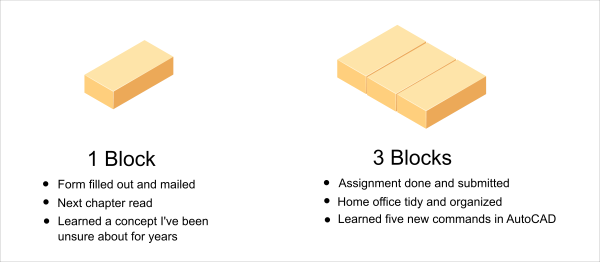
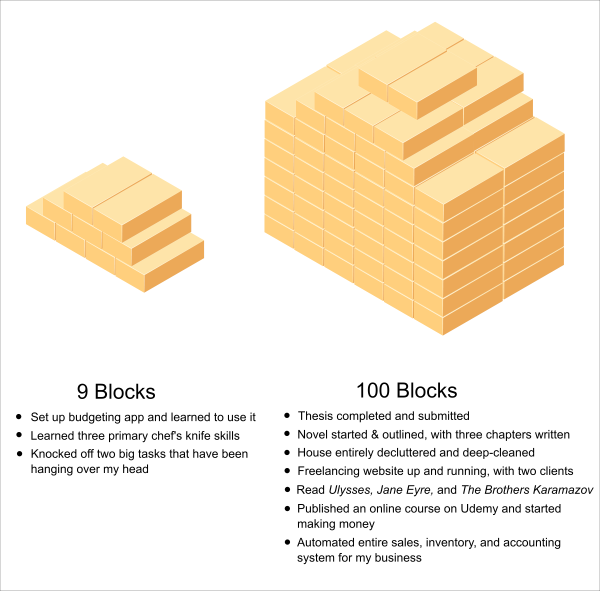
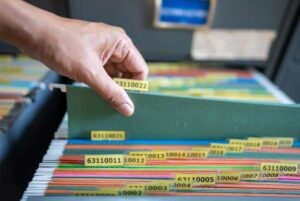



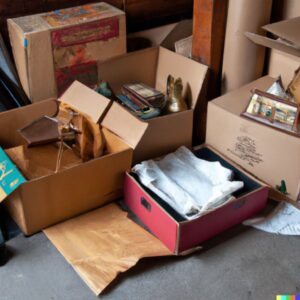
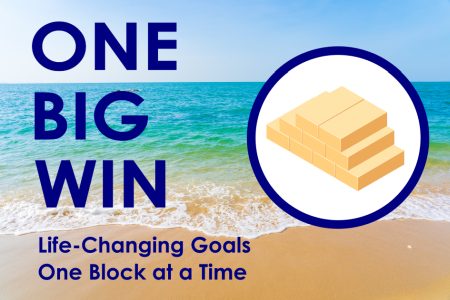
 I'm David, and Raptitude is a blog about getting better at being human -- things we can do to improve our lives today.
I'm David, and Raptitude is a blog about getting better at being human -- things we can do to improve our lives today.
** Starts a slow clap **
*Bows*
Awesome! Gotta think about this. Some goals are unattractive but bothersome (organise the last 18 years of family photos and print some out/frame/put in albums) and others are attractive (reprint my best linoprints from the last 5 years and frame them – and carve/print new linoprints as gifts for my nearest and dearest rather than leaving them languishing in my art studio unseen).
Definitely pick one that is appealing. There are a lot of things we feel like we should do, but don’t actually want to do. I would let go of those and go for something that you’ve been wanting to do but feel like you don’t have time.
I love the idea of this, but in the spirit of “know thyself,” I think I would be setting myself up failure if I tried this in December. Hope you do it again after the New Year!
I will definitely do it again sometime next year. If you want to get the discount, though, you could register now and set your start date in January.
Hi David, First time comment, relatively recent reader (read the top 65 and all your posts for the past year). Found you through fellow Canadian, Mr. Money Mustache, who I hold in very high regard. I bought your How To Do Things booklet a couple months ago and associated reader tips. TOTAL game changer. This, from someone who’s been a fairly active GTD’er (but not always successful) for 20 years.
I haven’t been tested for ADHD, but based on reading about your experience, something tells me I’m in your camp on that. I’ve also adapted to deal with it. Your How To Do Things just spoke to me.
Anyway, I’m signing up for this course. I have a few ideas and will pick one, starting a book or website are two right off the bat. Thank you.
Awesome! Excited to see what you make.
David, I’ve just read How To Do Things and done three Blocks. Love it! The thing that would most improve my life would be solving the mysteries of my computer, like Why can’t I save bookmarks any more? What’s happened to the photos that have disappeared from some of my folders? Etc. Trying to find answers on line hasn’t worked (and I am not a whiz at this). I could look for a tutor but am not sure that process would lend itself to Block usage during the course. You got any thoughts or suggestions? Thanks for your work — it’s brilliant.
I think “learning things you’ve always wanted to know” is a great project. It can just take a Block or two to really get something that will save you time for the rest of your life, and you could make your Big Win a whole list of those questions.
In the course there is a detailed guide on what I call “How-To Research”, which is a method of figuring out how to do a thing you don’t know how to do, by using an online search process.
Hiring a tutor, if you need to, could be a worthwhile way to get the answers you’re looking for. We talk about “to Block or not to Block” when it comes to tasks that aren’t especially conducive to Blocks. The “win” is the goal, not the Blocks per se, so you’re encouraged to use any means necessary.
What time of day are these classes/lessons? Are they via zoom?
THanks
It is an online course where you do the lessons whenever it’s convenient for you.
Hi, David, Long time fan here. I downloaded How to Do Things when it was just a pup, and it led me to using blocks for many things. I even bought a set of wooden cubes to pile up on my desk. It works! Then I lost momentum as other things took my focus. I’d like to join you now, but I have one question. And I used it to notice and appreciate small, one-session-at-a-time “goals.”
I have a somewhat complex goal I think this method would help with. It’s definitely life-altering. And I have plenty of time; that’s not an issue. The issue I have is something like avoidance, or more like resistance. It will involve me learning new habits as well as new information, and of course processing whatever I keep resisting. Is this a good fit? Hope the answer is yes, and in time for me to still join. And thanks either way!
The course focuses on getting to the big-ish thing that you’re resisting. Part of the course is zeroing in on the psychological obstacles to doing the thing. The time-and-date-based commitment also helps to prevent continually resisting the goal (i.e. procrastination). There is a lot of focus on identifying the precise part of the goal we’re afraid of — the “dragon” that must be confronted in your quest.
David, when I follow the link it says the course is closed. Is that accurate?
It is closed now, yes. I will be running it again in 2024.
Thank you for your article on Personal Goals Have to Happen Now
thanks..
خرید انواع کتاب های پزشکی و روانشناسی از وب سایت اشراقیه
Great insights! I love how you broke down complex ideas into simple, actionable steps. Can’t wait to implement these tips in my own life.
Comments on this entry are closed.